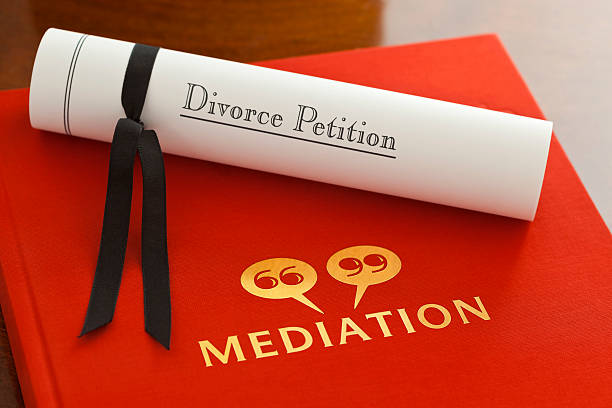Life throws financial and emotional curveballs, sometimes simultaneously. Debt collection and divorce are two situations that can cause significant stress and strain. While seemingly unrelated, understanding debt collection and the benefits of mediation for divorce can offer solutions and pave the way for a more manageable future.
Debt Collection: Understanding Your Rights and Options
Debt collection is the process by which creditors attempt to recover outstanding payments from debtors. This process can be intimidating, but understanding your rights and options can empower you to navigate the situation effectively. Here’s a breakdown of the debt collection process:
- Communication: Creditors or collection agencies typically initiate communication through phone calls, letters, or emails. Responding to these attempts is essential, even if you can’t pay the total amount immediately.
- Debt Verification: You have the right to request verification of the debt, including the original creditor, amount owed, and breakdown of any additional fees.
- Payment Options: Explore options with the creditor, such as negotiating a payment plan, debt settlement, or consolidation loan.
- Legal Rights: Be aware of the Fair Debt Collection Practices Act (FDCPA), which protects consumers from unfair and harassing collection tactics.
When to Seek Professional Help with Debt Collection
While you can manage debt collection on your own, there are situations where seeking professional help is beneficial:
- Harassment: If the collection agency engages in harassing behavior, such as excessive phone calls or threats, consider contacting a lawyer specializing in consumer protection.
- Debt Validation Issues: If you dispute the debt’s validity, seeking legal counsel can help you navigate challenging the debt.
- Complex Debt: A credit counsellor or financial advisor can help develop a comprehensive debt management plan if you have multiple debts from various creditors.
Divorce Mediation: Seeking Solutions Through Communication
Divorce is a complex emotional process that often involves financial considerations. Mediation for divorce provides a structured environment where couples can work towards a mutually agreeable resolution regarding assets, child custody, and spousal support.
Benefits of Divorce Mediation
- Reduced Conflict: A neutral mediator facilitates communication, promoting a calmer and more respectful environment for reaching an agreement.
- Control Over the Process: Couples have more control over the divorce’s outcome than a court-mandated decision.
- Focus on Children: In cases with children, mediation can prioritize the well-being of the children and establish co-parenting plans that work for both parties.
When to Consider Divorce Mediation
Mediation for divorce is not always the right solution but can be beneficial in several situations:
- Open Communication: If both parties are willing to communicate openly and honestly with each other, mediation can be an effective tool for reaching an agreement.
- Focus on Children: For couples with children, mediation can create a child-centred environment where they can work towards shared custody arrangements and minimize conflict for the children.
- Willingness to Compromise: Both parties must compromise and work towards a solution that meets everyone’s needs, even if it’s not ideal.
Conclusion
Whether facing debt collection or navigating the complexities of divorce, seeking professional help can offer solutions and guidance. Understanding your rights in debt collection can empower you to negotiate and manage your financial situation. Similarly, mediation for divorce can provide a structured environment for finding common ground and reaching agreements that benefit everyone involved, especially children. By exploring these options and seeking professional guidance, you can navigate these challenging situations and create a more manageable path forward.

